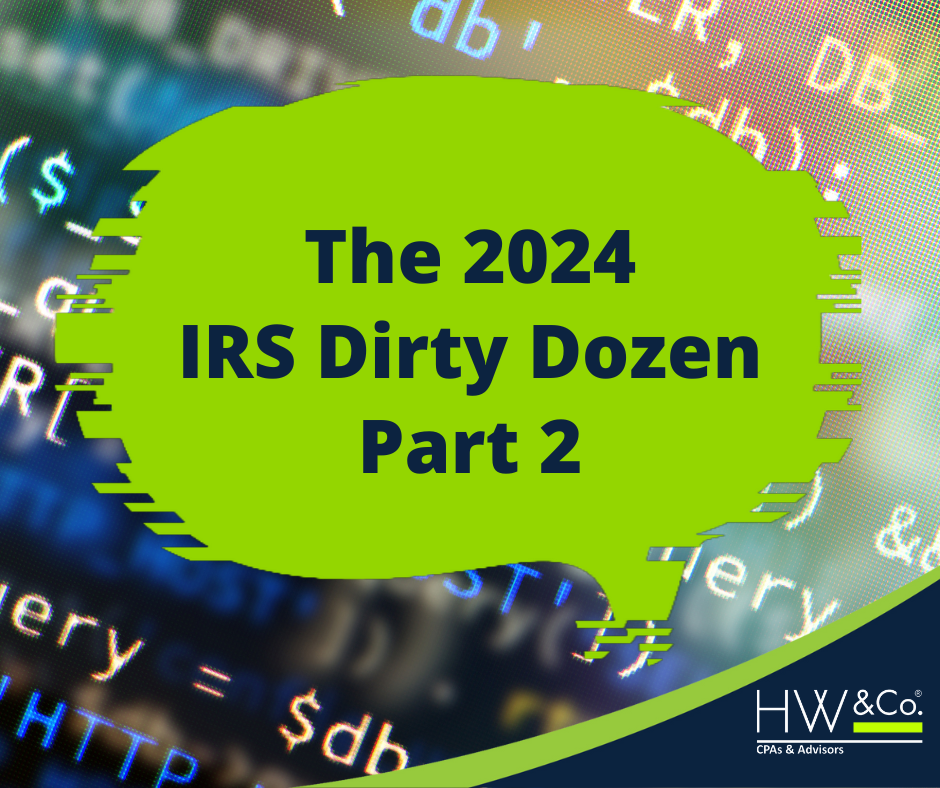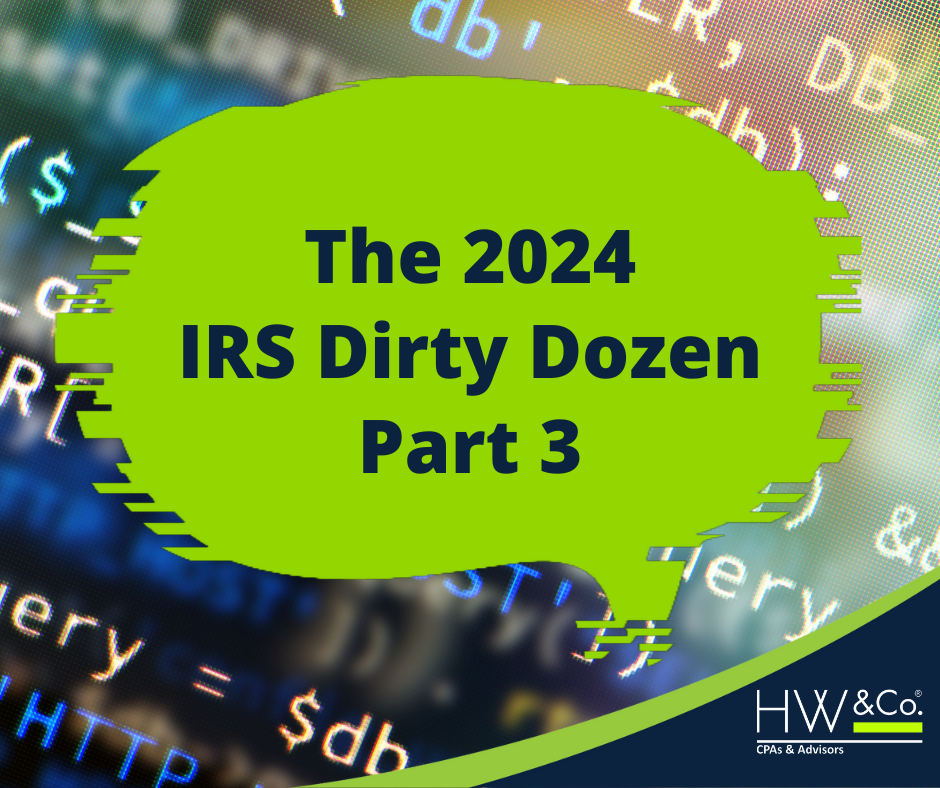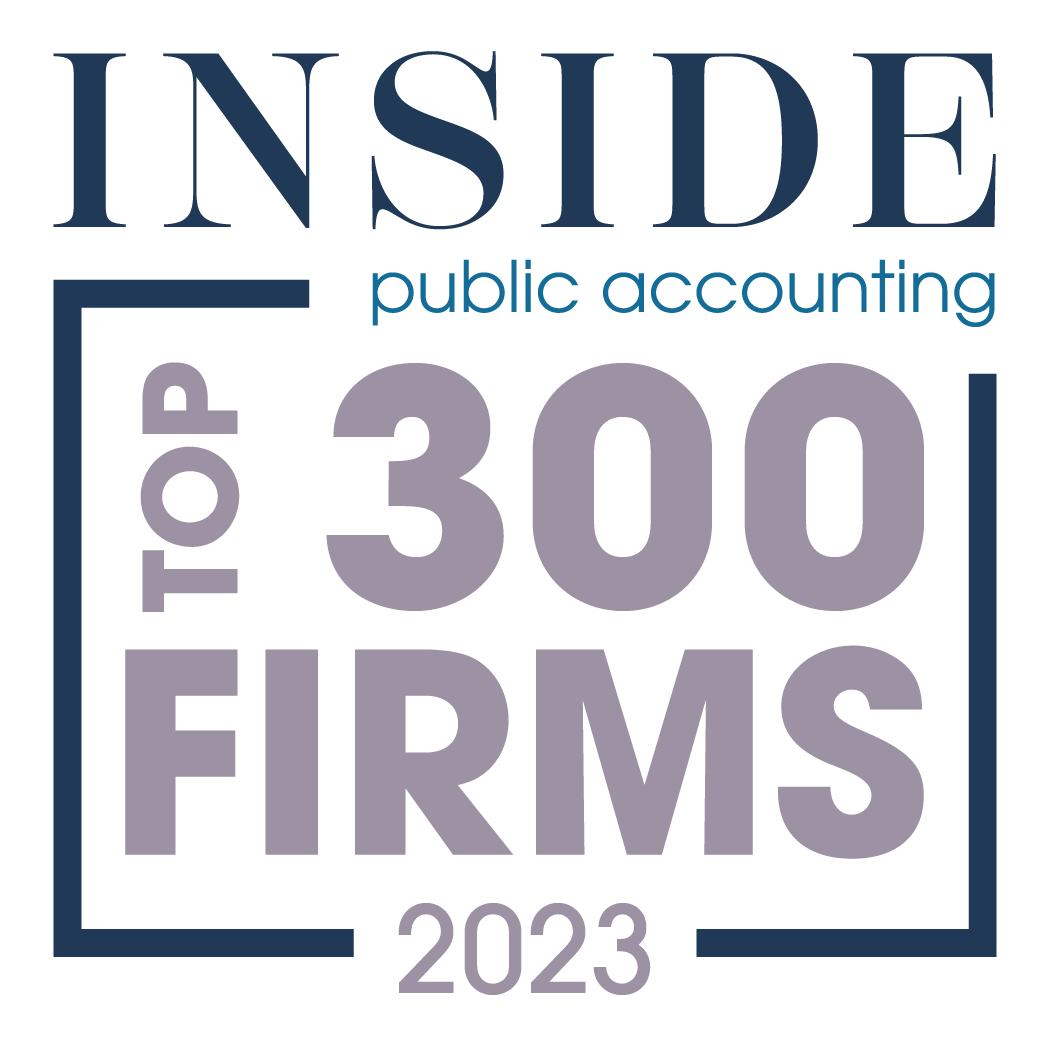 In this article, we present two more scams from the IRS’ 2024 Dirty Dozen list: spearphishing and schemes aimed at high-income tax filers. Read on so you don’t fall victim to these scams.
In this article, we present two more scams from the IRS’ 2024 Dirty Dozen list: spearphishing and schemes aimed at high-income tax filers. Read on so you don’t fall victim to these scams.
9. Spearphishing
Spearphishing is phishing that uses scams designed to target a specific business or organization. As we discussed in IRS Dirty Dozen Part 1 – 2024 Campaign Kicks Off With Warning About Phishing, Smishing, and ERC Scams, phishing occurs when an imposter sends an email that appears to be sent from a legitimate source, but it lures taxpayers into providing sensitive personal information or manipulates them into participating in certain schemes, such as receiving a phony tax refund or convincing them that they have committed tax fraud. Spearphishing messages (either via email or text) use specific information about an organization to convince victims of the message’s authenticity and trick taxpayers or tax preparers into providing sensitive personal information. Tax professionals and businesses should be on the lookout for an increase in “new client” scams, in which identity fraudsters impersonate prospective clients using fake emails.
Spearphishing is especially risky because it often targets tax professionals in an attempt to gain access to their professional identities and information. Scammers can use this data to perform a data breach and gain access to clients’ personal data. The information gleaned can be used for a variety of nefarious purposes, including filing fraudulent tax returns. Because shrewd scammers have started using the IRS logo and intimidating subject lines (with phrases like “urgent” and “action required”), it’s easy for even seasoned professionals to misstep. To protect yourself against spearphishing, follow these tips:
- Don’t click on links in emails (instead, type link text directly into your browser).
- Reach out to the sender to determine whether the email is legitimate.
- Remember that phishing and spearphishing are year-round threats; don’t let your guard down after tax season.
“It’s crucial for tax professionals and businesses to be wary of creative and evolving cyberattacks designed to access sensitive systems,” said IRS Commissioner Danny Werfel. “Cyberattacks pose a threat to not just the livelihood of the businesses, but the sensitive tax and personnel information that identity thieves can use to try filing fake tax returns. The Security Summit partners continue to urge tax pros and businesses to be on guard and educate their employees. Taking simple steps by using extra caution when opening emails, clicking on links, or sharing private client information can prevent tax professionals from being taken advantage of by cybercriminals.
10. Schemes Aimed at High-Income Tax Filers
There are three types of tax traps regularly used by unethical tax preparers or promoters to abuse high-income taxpayers and leave them vulnerable: Charitable Remainder Annuity Trusts (CRATs), inflated art donation deductions, and monetized installment sales.
Taxpayers can legally claim art donations. However, some unethical promoters use direct solicitation to make unrealistic promises about artwork’s value. These promoters persuade taxpayers to purchase art, usually at a “discounted” price. The price might also be purported to cover costs associated with transportation, storage, and the art’s appraisal. The promotor will convince buyers that the art is worth much more than the purchase price. These scams trick buyers into donating the art (after waiting at least one year) and claiming a tax deduction for an inflated fair market value. Promoters may even coordinate with a particular charity to accept the donations.
A CRAT allows a taxpayer to provide assets to an irrevocable trust, which then donates to a certain charity or charities. That trust then also pays an annuity to a noncharitable beneficiary. Dishonest tax preparers or advisors may misapply certain rules to eliminate ordinary income and capital gains on the sale of property, thus avoiding taxes that would normally be incurred.
With schemes involving monetized installment sales, corrupt promoters or tax preparers lure taxpayers who wish to defer the recognition of gain for the sale of an appreciated property. They offer services, for a fee, to facilitate monetized installment sales. However, they then inappropriately delay the recognition of gain, often for many years. In very limited cases (typically with farm property) monetized installment sales can be properly applied. However, most transactions being sold by promoters will not withstand a review by the IRS.
“High-income taxpayers can be vulnerable to being pulled into these aggressive schemes and scams,” said IRS Commissioner Danny Werfel. “Taxpayers should be extra careful on tax maneuvers that seem too good to be true. Beware of advertisements for seemingly ideal tax structures that distort tax laws and leave victims with civil or criminal tax penalties.”
Learn more about these schemes targeting high-income filers in the IRS’s news release IR-2024-104.
The IRS urges people to report abusive tax schemes and abusive tax return preparers.
Read more about the IRS’s Dirty Dozen campaign:
IRS Dirty Dozen Part 1 – 2024 Campaign Kicks Off by Warnings About Phishing, Smishing, and ERC Scams
IRS Dirty Dozen Part 2 – Fake Online Account Assistance, False Fuel Credit Claims, and Offer in Compromise Mills
IRS Dirty Dozen Part 3 – Fake Charities, Deceitful Tax Professionals, and Social Media
Stay tuned as we continue to profile the remaining entries to keep you apprised of how to avoid evolving tax schemes.
For more information, please visit the IRS website or contact an HW&Co. Advisor today.
©2024






